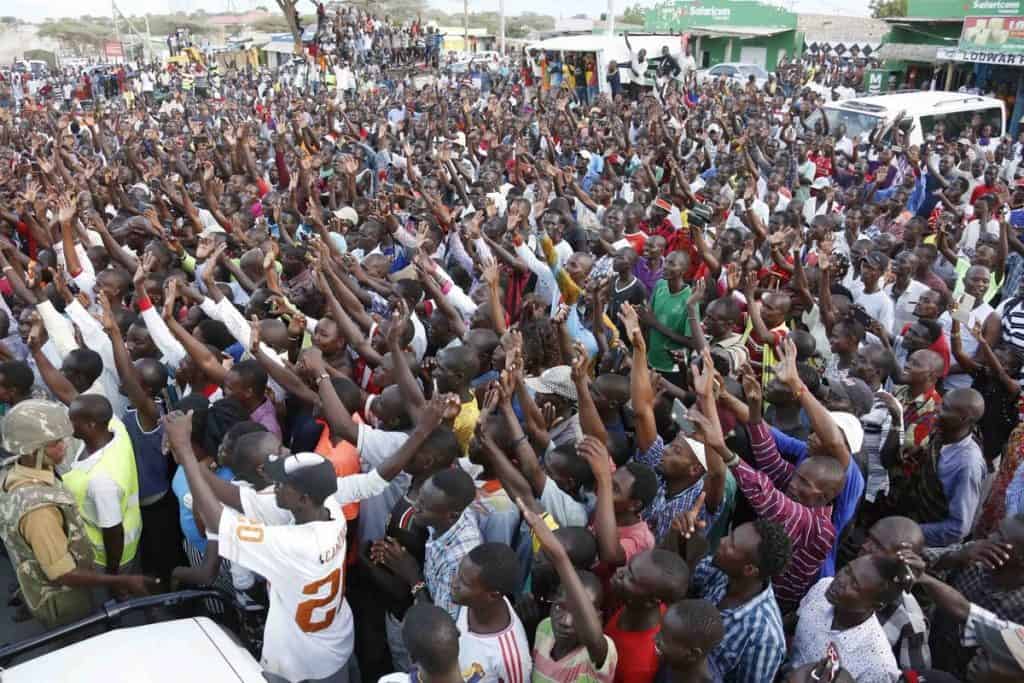As Kenya looks to recover from a market disruption caused by the Covid-19 pandemic, the country finds itself at crossroads as presidential elections loom in 2022.
With elections typically a period of inaction and subdued growth, industries are struggling to recover from Covid-19 before being thrust into yet another challenging moment. The construction industry is among the industries that are most affected during the elections.
The construction industry in Kenya is exceedingly imperative in the country’s economy. The industry explores new ways to help deliver affordable housing and to improve infrastructure that the country requires to enhance its capabilities in a bid to improve the quality of life of its citizens. But the industry is a subject to politics, especially during the election season.
While both national politics and the construction industry plays a role in the country’s economic development, politics affects the construction industry in many direct and indirect ways. This is not uncommon in Kenya where elections and the building and construction industry is usually in a give and take partnership.
During campaigns, political figures try to look attractive and win voters by promising infrastructure upgrades, create regulations, and laws, but the campaigns have negative effects, especially on the industry. This raises a concern for many of those involved with the construction sector
Concerns in the construction industry
A concern for many in the construction sector is whether the current situation in the country will change. Will the political atmosphere in Kenya affect the construction industry? Will the situation deteriorate to a point of affecting investments and construction projects? To investors and all involved, the question will be, will the occurrence of political events affect the profitability of a given investment? Let’s have a look at what to expect during the elections.
Political unrest
Political unrest includes civil disobedience, acts of war, and labour relations that affect work schedules. The list might extend to include the expropriation of assets, delays in client approval, force majeure, corruption, and changes in some of the policies already in place.
local interference
Local interference signifies the closing of business, offices, workplace and education with the object of realizing a demand. In Many countries, politicians use this as a tool to disrupt the economy as people protest. When a political party calls for nationwide “local interference”, the country is forced to shut down. The movement of people, goods, and services are either restricted or completely stopped.
Protests
During protests, workers possibly will not reach the work site in time due to disruption of transportation services. Protests also have advanced effects on material delivery to the construction site. Events such as these have a direct impact on construction works at different locations in the country.
Time and cost
Time and cost are of the essence in the construction industry. Typically, a project is broken down into time and cost needed to complete the project. Political unrest represents one of the largest challenges, consequently leading to time overrun and cost increase for construction projects.
Investment and cash flow
While money supply and investments are important to every industry in the country, there is the risk the two could suffer due to political instability in a country during elections. The fact that investors and key businessmen have already expressed fear over the stability and security of their investments ahead of the 2022 general elections, makes matters worse. According to reports, most investors are unwilling to invest in projects. They are gauging the political stability in the country before launching big projects. The lack of investors in itself, lead to cash flares, which is already affecting the construction industry.
Actions to Control the Effects at your construction site or company
- Nurture peace and discipline at the workplace and reduce absenteeism to limit the decline in productivity at the workplace.
- Construction companies and organizations should regularly monitor government announcements to ensure compliance with the most recent regulations and guidelines.
- It is critical to mandate workers to refrain from coming to work with party slogans and printed t-shirt of the party they support.
- Address workers concerns regarding their safety and welfare to prevent widespread fear and uncertainty before and after the political cycle.
- Boost employee morale and provide support for maintaining neutrality at the workplace and avoiding politically related chat.
- Nurture peace and discipline at the workplace and reduce absenteeism, which, in turn, will limit the decline in productivity at the workplace.
- Companies and investors should maintain regular communication and coordination between workers.
- Assess the possibility of late or halted deliveries of materials from suppliers
- Ensure labour, equipment, and material availability.
Conclusion
Historically, elections interfere with the country’s economy. They statistically have significant effects on industries performances. The political situation in Kenya, like many other developing countries, is not very stable. Political Events and the occurrence of protests during the election period can disrupt many industries.
Provided the industry is among the predominant sectors in the country, it is often within the jurisdiction of political figures. With the elections drawing closer and the country about to plunge deep into the campaign mood, it is advisable for those in the construction sectors to be well prepared for any eventualities way before the elections are here.

